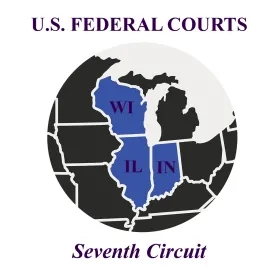On March 22, 2020, the Supreme Court of Wisconsin ordered that all in-person proceedings at the trial court and appellate court levels are suspended until April 30, 2020. Despite ordering this suspension, the order explicitly declared that the Wisconsin Courts will remain open. The Eastern and Western Districts of Wisconsin have issued similar orders, limiting the types of in-person hearings, but keeping the courthouse open for filings. Additionally, the courts and court personnel were declared essential governmental functions under Governor Evers’ Safer at Home Order. Wisconsin state and federal courts allow parties file documents and start lawsuits electronically.
What this means for individuals and businesses is that Wisconsin courts remain open for filings and cases will proceed, even if in-person hearings and trials are rescheduled. Individuals and businesses need to be mindful of filing deadlines.
Filing a New Lawsuit
One of the most important deadlines an individual or business with a lawsuit faces is the “statute of limitations.” A “statute of limitations” is the time in which a person or business can bring a lawsuit. The statute of limitations can range from a few months to a number of years. Typically, in Wisconsin, most statutes of limitations fall between 2 to 6 years. If a person or business doesn’t bring their claim within that defined statutory period, the person or business will lose their right to pursue this claim.
Although some states, such as Kansas, Oklahoma, and New York,[1] have issued orders or passed legislation to temporarily toll the statute of limitations during this time, Wisconsin has not yet done so. It is unclear whether Wisconsin will ultimately toll the statute of limitations.
What is clear is that persons and/or businesses with potential claims facing an expiring statute of limitations must take caution to ensure they file their lawsuit, even now during the COVID-19 crisis, or risk forever losing the chance to pursue the claim.
On-Going Lawsuits
Similarly, for those that may have active litigation, filing deadlines set before the COVID-19 crisis remain in effect. While many courts may be willing to extend previously set deadlines, none of the orders filed by the circuit courts or the Wisconsin Supreme Court automatically extend filing deadlines at the trial court level. Therefore, parties will need to move the court for extensions. Often to be successful, these motions are the product of negotiation and stipulation with an opposing party. Similarly, the time in which a party may file its notice of appeal or petition for review with the Wisconsin Supreme Court have not been extended, except in three narrow circumstances.
The Wisconsin Supreme Court has, however, ordered that in all matters pending before the appellate courts with deadlines that would expire between March 19, 2020 and April 3, 2020, these deadlines are extended by 21 days. Therefore, it is imperative that deadlines are not only monitored, but court orders pertaining to the COVID-19 crisis are also monitored, because they may alter these deadlines.
[1] This is an exemplary list of states that have tolled the statute of limitations, but is not an exhaustive list of states.





 />i
/>i
